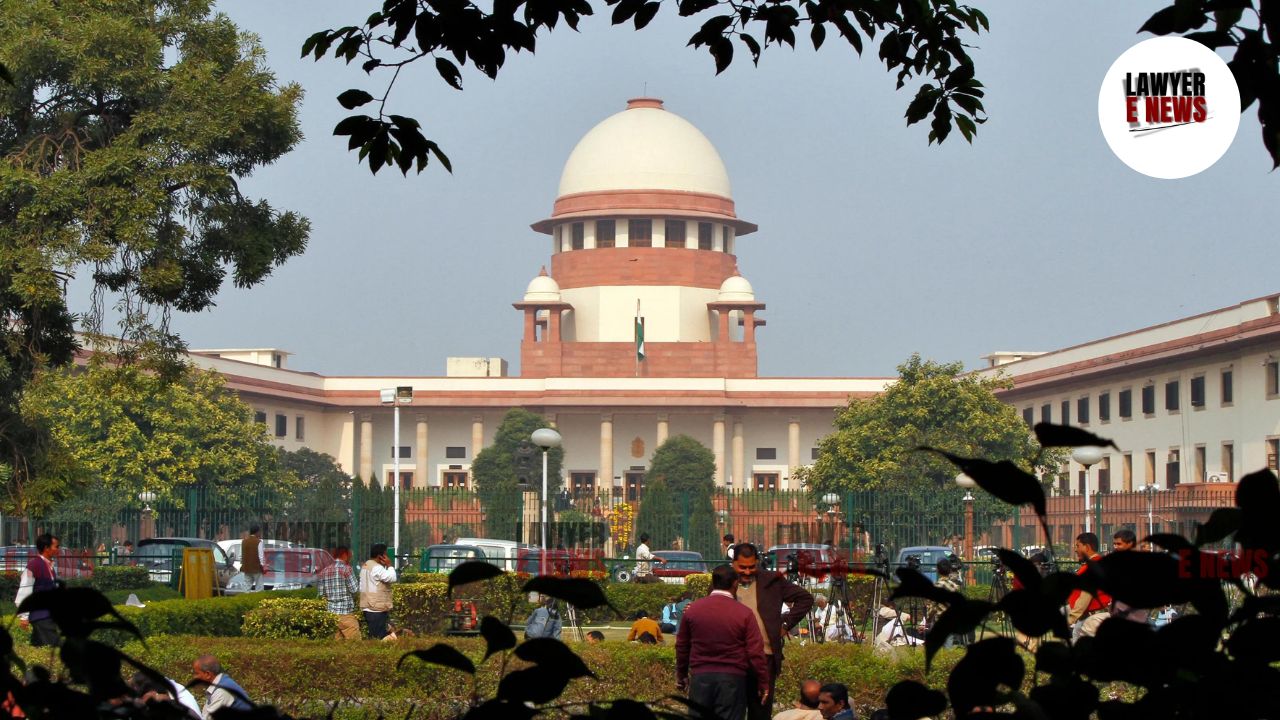-
by Admin
15 February 2026 5:35 AM



Supreme Court of India delivered a landmark judgment in a batch of appeals arising from disputes over land acquisitions for the Yamuna Expressway Industrial Development Authority (YEIDA) project. The Court upheld the invocation of the urgency clause under Sections 17(1) and 17(4) of the Land Acquisition Act, 1894, and resolved conflicting views previously taken by the Allahabad High Court in two key cases: Kamal Sharma v. State of U.P. and Shyoraj Singh v. State of U.P.
Justice B.R. Gavai and Justice Sandeep Mehta, writing the judgment, declared:
“The urgency provisions were invoked in accordance with law, considering the enormity of the project and the public interest involved. The acquisition forms an inseparable part of the integrated development plan of the Yamuna Expressway, promoting industrial, residential, and recreational growth.”
The appeals emerged from land acquisition notifications issued by the Uttar Pradesh Government for the integrated development of the Yamuna Expressway, which connects Delhi and Agra. YEIDA, the statutory authority implementing the project, proposed acquiring approximately 2,979 hectares of land across 16 villages. The acquisition invoked urgency provisions under Sections 17(1) and 17(4) of the Land Acquisition Act, bypassing the landowners' right to object under Section 5-A of the Act.
Discontented landowners challenged the acquisition before the Allahabad High Court, resulting in conflicting rulings. While the High Court upheld the acquisition in Kamal Sharma, it quashed the notifications in Shyoraj Singh, finding the invocation of urgency arbitrary and unsupported by evidence.
The Court extensively analyzed the precedents, legal principles, and facts surrounding the case. It addressed three pivotal questions:
Was the acquisition part of an integrated development plan? The Court affirmed that the Yamuna Expressway and the adjoining development of land parcels for residential, industrial, and recreational purposes formed an integral project, emphasizing the mutual dependency of these components.
Was the invocation of urgency provisions justified? The Court held that urgency was sufficiently demonstrated by the project's magnitude, the need for expeditious land possession, and the risk of delays caused by large-scale objections. It stated:
“The urgency provisions under Section 17(1) and 17(4) were applied to avoid delays that would defeat the purpose of the project—a public infrastructure initiative of national importance.”
Which High Court judgment reflected the correct legal position? Overruling Shyoraj Singh, the Court upheld Kamal Sharma, finding that the earlier judgment correctly applied the principles laid down in the Supreme Court's 2010 ruling in Nand Kishore Gupta v. State of U.P. It criticized Shyoraj Singh for overlooking binding precedents and misapplying the principles set forth in Radhy Shyam v. State of U.P.
The Court also addressed the enhanced compensation of 64.7% awarded by the High Court in Kamal Sharma, describing it as a fair resolution for landowners. Observing that the majority of landowners had accepted the compensation without challenge, the Court directed uniform application of the enhancement.
The Supreme Court's ruling brings clarity to the legality of urgency provisions in land acquisition for large-scale infrastructure projects. By reaffirming the validity of the YEIDA project’s acquisition process, the judgment underscores the need to balance individual rights with public interest in developmental initiatives.
Date of Judgment: November 26, 2024
